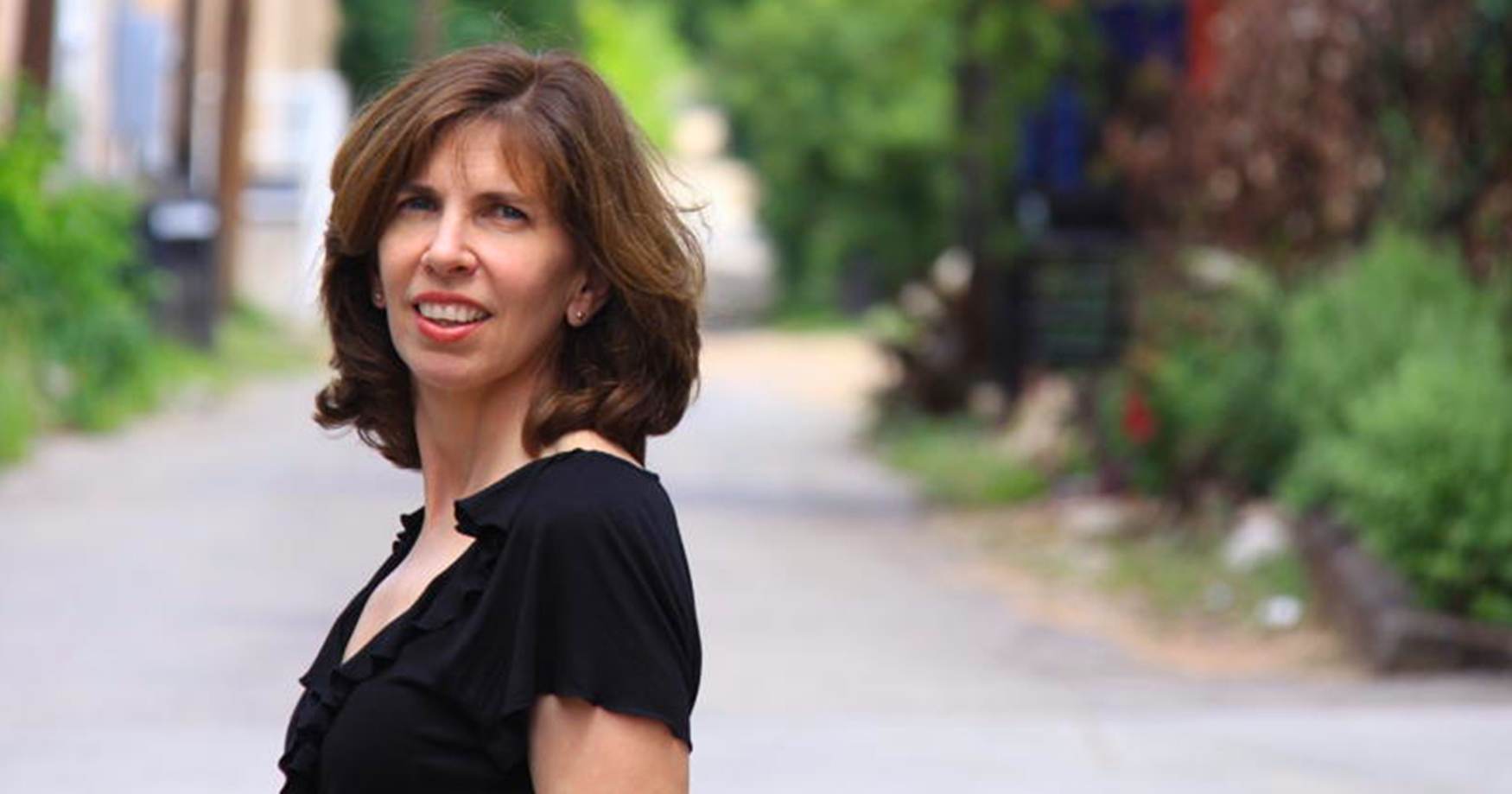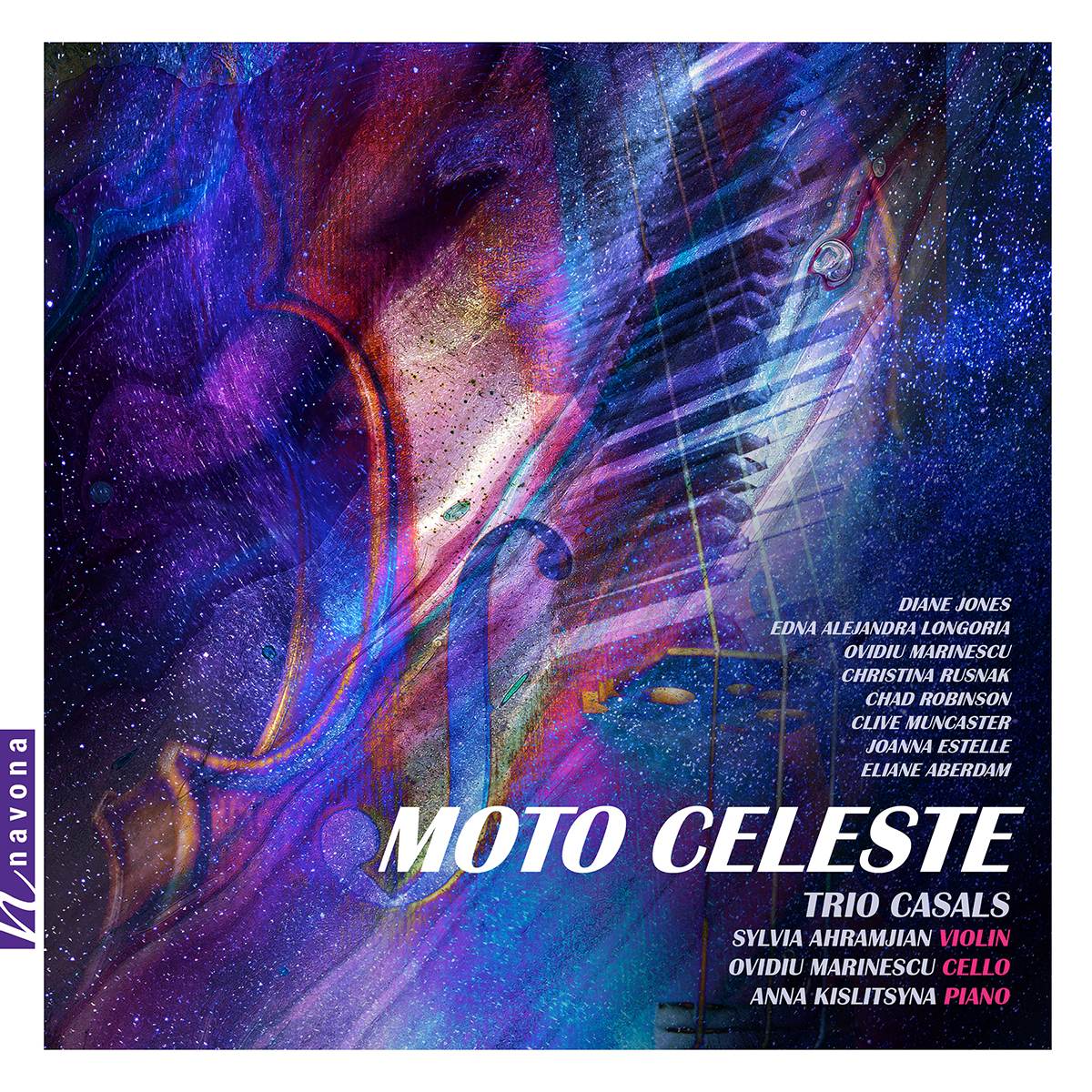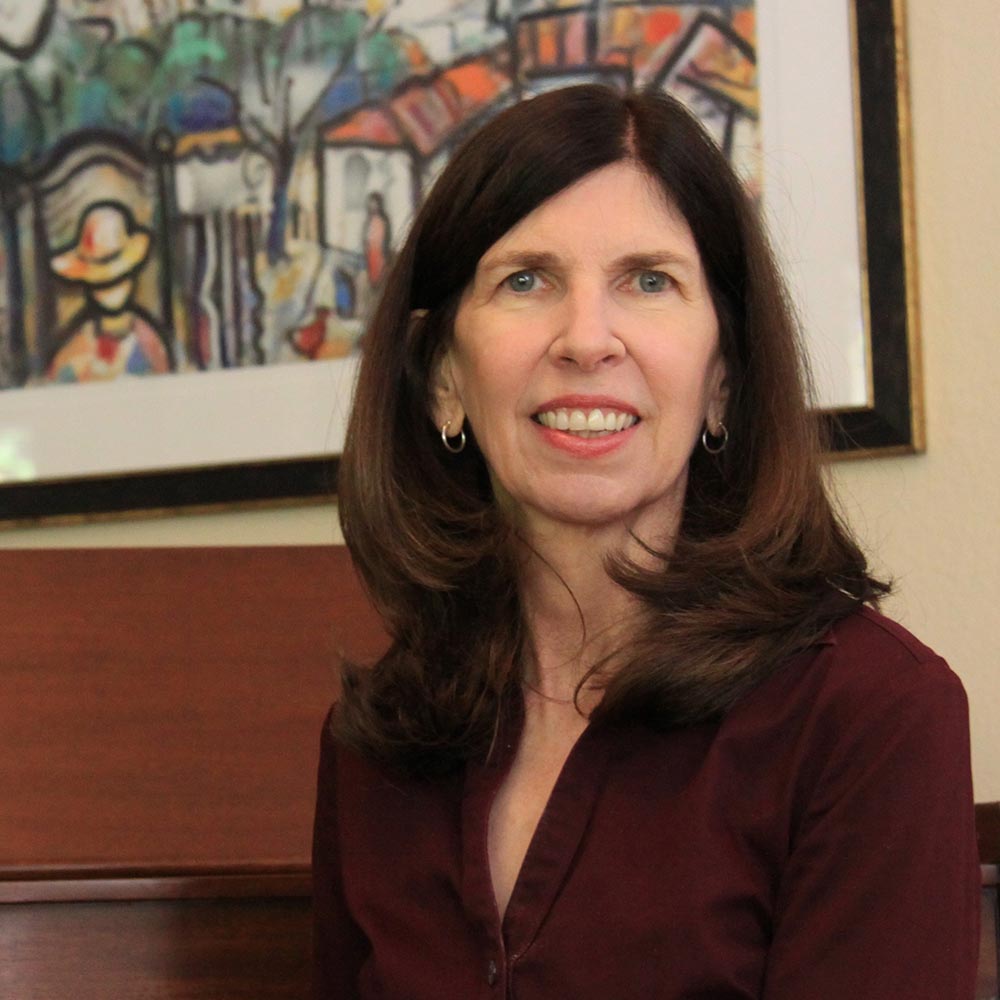
In MOTO CELESTE, the fifth installment in Navona Records’ MOTO series, the internationally-acclaimed Trio Casals takes on eight new works by eight preeminent composers, including Christina Rusnak. It is an electrifying collection, full of drama and adventure, and will be premiering at Carnegie Hall this Wednesday, February 5th (Tickets available here).
Christina, a Northwest-based contemporary composer and explorer, is passionate about composing about place and the human experience. She works at the intersection of place, nature, culture, and history, and seeks to integrate context into her pieces. The composer also strives to create thought-provoking music that engages both the performers and the audience.
Today, she is our featured composer in “The Inside Story,” a blog series exploring the inner workings and personalities of our artists. Read on to discover how her piece developed from a PARMA recording session in Cuba…
Who were your favorite artists growing up?
Growing up, I had a broad musical background, though it excluded popular music. My mother was a gifted vocalist, and took us to a myriad of performances from the symphony and opera to jazz and musicals. I attended a John Cage “event” when I was 12, and went to see Oscar Peterson and other jazz greats as a teenager. I don’t know that I have a favorite composer, or performer, but Bach, Mendelssohn, Bartok and Debussy were definitely classical influences. Growing up with traditional jazz, I was enamored with the Jean Luc Ponty’s music while attending the University of North Texas.
When did you realize that you wanted to be an artist?
I’ve been consciously composing since I was nine years old. Although like many composers, I was probably playing around with sound and putting different sounds together before that. In junior high and high school, when other kids wrote poems or drew images for creative projects, I wrote songs and ballads. My piece on Beowolf is epic! (ha ha!) When did I realize that I wanted to be a composer? Realization truly is an apt way to describe it. Certainly, by age 14. Many people ask me when I DECIDED to become a composer. It was never a decision or a choice. A composer is simply who I am and what I do. And I love to sing.
If you could instantly have expertise performing one instrument, what instrument would that be?
As a mezzo soprano who prefers the anonymity of a choir to the spotlight of a soloist, I do wish I could instantly have mastery of the piano. As a teenager, I spent too much of my time “interpreting” the pieces assigned rather than practicing my fingers to accurately articulate the standard practice of the pieces I studied.
What is your guilty pleasure?
Your questions about guilty pleasure and what my ideal job in the world to make a living would be are interrelated. Some define guilty pleasure as something consumed, like chocolate and wine. I do love those, but for me guilty pleasures include any activity I ardently pursue with no thought of income. As artists, we perform, compose, research, write and more, not for the money, but because we must. To be able to make a living just composing would not be a job, it would be something more fulfilling than that. Most musicians create a living out of an assemblage of activities involving music.
The other thing I must do is travel. By nature, I’m an explorer. That informs everything I do including music. Exploring not only place, but also ideas, culture and ways of thinking. I’m curious to understand how people, place, and ideas intersect – how the present has evolved from the past, and how people encode various levels of meaning in our lives. I spend more than half of my “composing” time researching, understanding, and talking with people. I immerse myself in place and/or partner closely with the performer I am writing for. I am my truest and best self when I am able to interweave composing and explorative travel.
If you could make a living at any job in the world, what would that job be?
I love geography, history and cultural studies. I find the thought of being a cultural geographer and/or landscape historian fascinating! In addition, I actually like, and am good at administrative management. I spent a season as an Executive Director for an orchestra right out of graduate school. The drawback was I had no time to compose. In July 2019, I had the opportunity to lead the Composing in the Wilderness adventure as part of the Fairbanks Summer Arts Festival. It was the trifecta of the perfect job. Composing + Exploring + Leadership!
What does this piece mean to you personally?
In April 2016, PARMA held its second set of recording sessions in Havana, Cuba. My piece, Glacier Blue began while exploring El Morro with cellist Ovidiu Marinescu. Had I ever written a cello solo? No… Perhaps… Over the course of many meals, the composers and performers on the trip got to know each other. Soon after, I was commissioned by Third Angle New Music Ensemble to compose a solo piece to celebrate the 100th Anniversary of the National Parks. A cello solo? I inquired. The performer would be Brazilian cellist Marilyn de Oliveira. I studied Ovidiu’s YouTube videos to understand his performance style and his technical strengths. I had lessons with Marilyn to understand hers. Then I went to Glacier National Park. Twice. I immersed myself in the landscape. The release of Glacier Blue on this album is a four-year journey from Havana to Portland, to West Chester, then Boston before arriving in New York.
Is there a specific feeling that you would like communicated to audiences in this work?
The notes and compositional details on the page often fall short of how a piece plays within a composer’s mind. The score and written instructions are the best we can do. It is the performer’s relationship with any work that is the key to effectively communicating with an audience. I usually ask performers to reach past the information on the page and FEEL the piece. Sitting in the recording studio last May while Ovidiu recorded Glacier Blue was transcendent. He felt the piece – the rising blue mountains, the night sky and sounds, and the cascading waterfalls! While the piece alludes some sounds to place, it is the audience’s feeling of being in Glacier National Park’s diverse landscape that I hope the audience experiences.
If you could spend creative time anywhere in the world, where would it be and why?
I love residencies, because they provide artists with the opportunity to spend creative time in a variety of places in the world. I’ve learned that when you don’t get the residency you applied for, CREATE one! I did not get the residency at Glacier National Park, but I went anyway and spoke with many of the park’s interpretive rangers and hiked many of its iconic trails.
The unstated implication of the question is that if we could spend creative time anywhere in the world, we would produce better art. I’m not sure that’s the case. The easy answer is Lake Como Italy. I went in 2007 and was entranced – thus, I fear, I would not be productive.
I want to spend creative time in a diversity of places that inspire me, where I can find meaning, be it historical, environmental, aesthetic, or cultural. I am spending creative time in two vastly different places in 2020. Both pieces will be composed for EARTH YEAR. The first trip in March is a self-residency to the Mojave Desert and to Death Valley. The second, longer residency is in May at the Visby International Centre for Composers in Sweden.

MOTO CELESTE featuring Christina’s piece Glacier Blue is now available to stream or purchase through Navona Records. Click here to explore this new album.

Inspired by concepts of place and the human experience, composer Christina Rusnak works at the intersection of nature, culture, history, landscape, and art to integrate context into her music from the world around her. Rusnak composes for diverse instrumentations with lyrical lines, and organic rhythms and textures. Her pieces range from elementary to professional levels and includes chamber ensemble, orchestra, wind band, choral and solo works, as well as flex band pieces, jazz, electro-acoustic works, and film.
